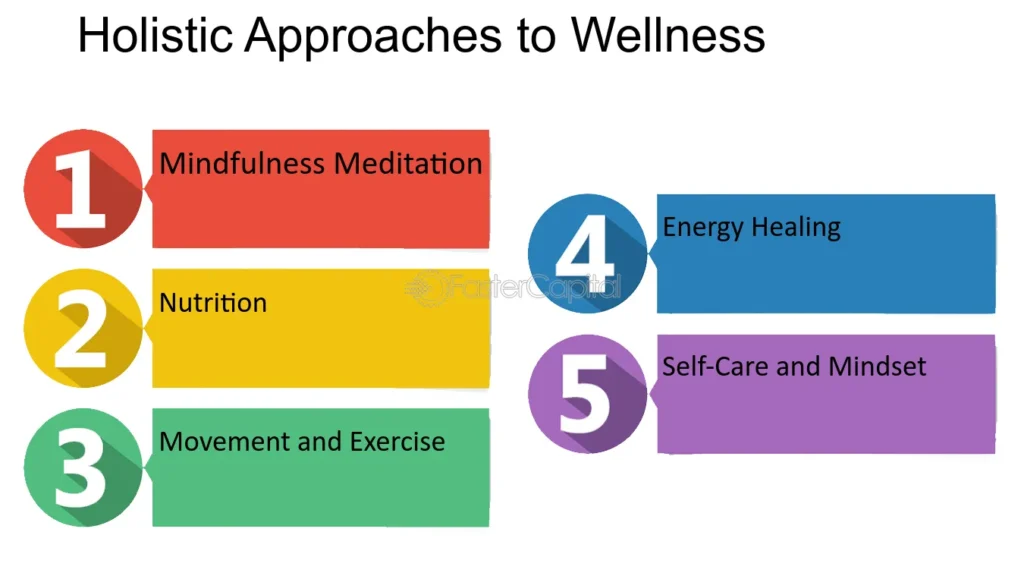In today’s fast-paced world, maintaining a balance between mental, physical, and emotional health can be challenging. Yet, taking charge of your health and wellness is key to leading a fulfilling life. Whether you’re just starting your journey or looking to enhance your current routine, this guide will offer insights and practical tips to help you achieve a better version of yourself.
1. Understanding Health vs. Wellness

Although often used interchangeably, health and wellness are distinct concepts. Health refers to your physical state—the absence of illness or disease—whereas wellness encompasses a broader spectrum, including mental, emotional, and social well-being. Wellness is about making proactive choices to live a healthier and happier life.
2. Nurture Your Body: Physical Wellness
Physical health is the foundation of overall wellness. Here’s how to nurture your body:

- Balanced Diet: Incorporate a variety of nutrient-dense foods into your diet, including fruits, vegetables, lean proteins, and whole grains. Hydrate adequately, aiming for at least 8 cups of water daily.
- Exercise Regularly: Aim for at least 150 minutes of moderate aerobic activity per week, such as brisk walking, swimming, or cycling. Don’t forget strength training exercises to build muscle and improve endurance.
- Sleep Hygiene: Prioritize getting 7-9 hours of quality sleep per night. Sleep is crucial for recovery, energy, and mental clarity.
3. Mental Wellness: A Healthy Mindset
Your mental health plays a significant role in your overall well-being. Here are ways to maintain a healthy mindset:
- Practice Mindfulness: Mindfulness techniques such as meditation and deep breathing can help you manage stress and stay present. Even 10 minutes a day can make a big difference.
- Set Realistic Goals: Whether in your career, relationships, or personal growth, setting achievable goals can boost your confidence and mental clarity. Celebrate small wins to stay motivated.
- Social Connections: Nurture relationships that provide emotional support. A strong social circle can help combat loneliness and stress.
4. Emotional Wellness: Managing Feelings
Understanding and managing emotions is vital for mental health and social connections. Some strategies include:

- Emotional Awareness: Take time to understand your emotions rather than suppressing them. This self-awareness can prevent stress buildup and allow you to manage challenges more effectively.
- Gratitude Practice: Studies show that cultivating gratitude can improve emotional health. Start by keeping a gratitude journal or simply acknowledging what you’re thankful for each day.
- Work-Life Balance: Striking a healthy balance between work and personal life is essential to maintaining emotional stability. Make time for hobbies, relaxation, and spending time with loved ones.
5. Holistic Approaches to Wellness
Wellness goes beyond the body and mind—it involves integrating practices that promote overall well-being. Here are some holistic approaches to consider:

- Yoga and Stretching: Yoga not only strengthens the body but also helps in mental relaxation. Even a few minutes of stretching a day can increase flexibility and reduce stress.
- Alternative Therapies: Consider exploring alternative health practices like acupuncture, aromatherapy, or herbal supplements to boost wellness naturally. Always consult with a healthcare professional before starting any new treatment.
- Digital Detox: Constant connectivity can cause burnout. Set aside time each day to disconnect from digital devices and engage in offline activities.
6. Preventative Care: The Key to Long-Term Health
Don’t wait for health issues to arise before taking action. Preventative care can save you from bigger problems down the road. Regular check-ups, screenings, and vaccinations are essential for early detection and maintaining overall health.

- Routine Health Screenings: Schedule annual checkups and screenings appropriate for your age and gender, such as blood pressure checks, cholesterol tests, and cancer screenings.
- Mental Health Support: Seek help if you are struggling with anxiety, depression, or other mental health challenges. Counseling or therapy can provide support and tools to cope.
Conclusion: Start Your Wellness Journey Today
Health and wellness is a personal journey, and there’s no one-size-fits-all approach. The key is to start small, be consistent, and create habits supporting your physical, mental, and emotional well-being. Remember, achieving wellness is not a destination—it’s a lifelong process. With each step, you work towards a healthier, happier, and more fulfilling life.
Call to Action: Are you ready to take control of your health and wellness? Start by making small changes today, whether it’s eating healthier, moving more, or meditating for 5 minutes. You owe it to yourself to be the best version of yourself.

